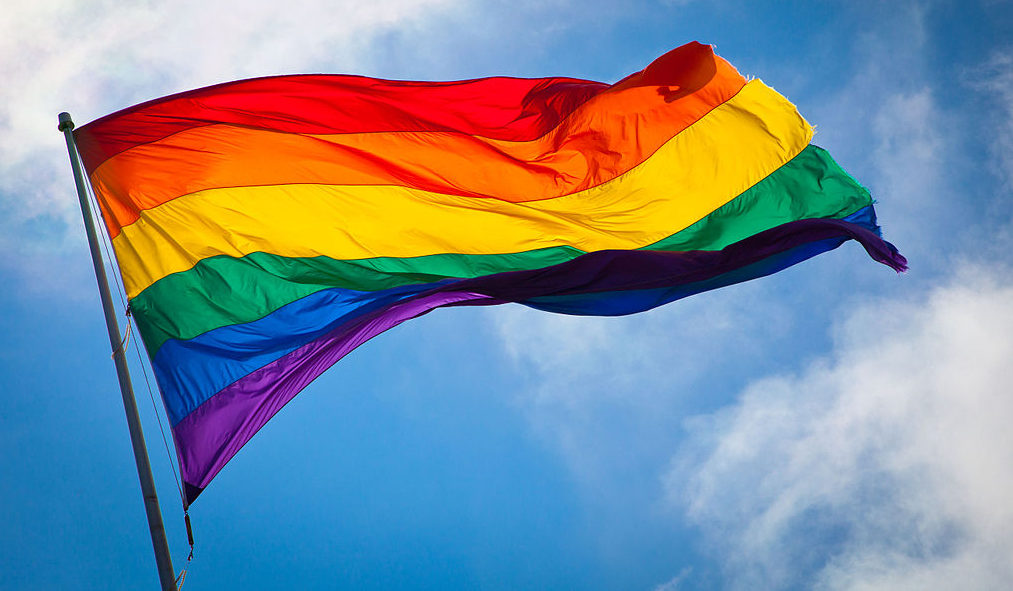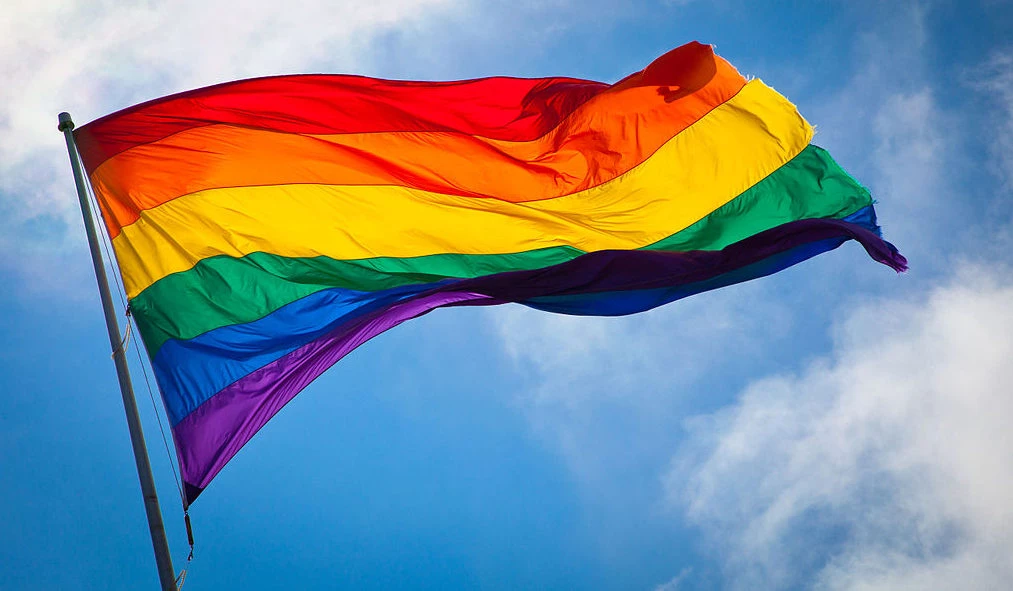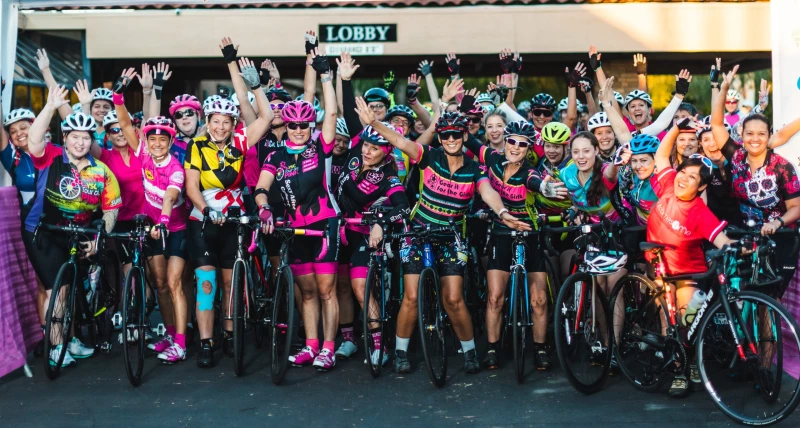 June is Pride Month - 30 days dedicated to taking a stand against discrimination and violence toward lesbian, gay, bisexual, and transgender (LGBT) people to in order to promote their self-affirmation, dignity and equal rights, increase their visibility as a social group, build community and celebrate sexual diversity and gender variance. Although this is a time to highlight many of the wins the LGBT community has achieved over the years, this community continues to face a wide range of health disparities. As an organization focused on young women affected by breast cancer, we recognize the many barriers that LGBT people face and their negative impact on breast cancer diagnosis, treatment and beyond.
June is Pride Month - 30 days dedicated to taking a stand against discrimination and violence toward lesbian, gay, bisexual, and transgender (LGBT) people to in order to promote their self-affirmation, dignity and equal rights, increase their visibility as a social group, build community and celebrate sexual diversity and gender variance. Although this is a time to highlight many of the wins the LGBT community has achieved over the years, this community continues to face a wide range of health disparities. As an organization focused on young women affected by breast cancer, we recognize the many barriers that LGBT people face and their negative impact on breast cancer diagnosis, treatment and beyond.
Barriers to care
LGBT people face a number of barriers to receiving quality healthcare. First, they’re less likely to have health insurance, because many employers do not provide health insurance coverage for unmarried domestic partners. Another major barrier for LGBT people is that they’re less likely to receive routine health screenings, which can result in later diagnoses. LGBT people may not seek routine care for various reasons, including insensitivity from healthcare providers who aren’t knowledgeable about their health needs and concerns; varying levels of discrimination within the healthcare system, including from healthcare professionals; and discomfort discussing sexual orientation with healthcare providers.
One of the first steps to encouraging LGBT people to better utilize their healthcare options starts with the healthcare professionals themselves. Healthcare providers should be culturally sensitive to and knowledgeable about the specific health concerns of LGBT people, and create an environment where they feel safe. Improving the cultural competency of healthcare providers will improve the level of care that LGBT people receive and ultimately translate into better health outcomes.
Some organizations, like the National LGBT Cancer Network, provide trainings to increase healthcare providers’ cultural competence to enable them to more effectively treat LGBT populations. Interested in learning more about cultural competency trainings? Their website has more information about their offerings, including their LGBT Cultural Competence Best Practices Manual.
Higher rates and risk factors
Besides the many barriers that LGBT people face in accessing quality care, they also experience higher rates of breast cancer compared to heterosexual women. This may be attributed to a cluster of risk factors that tend to be more prevalent among LGBT people such as smoking, alcohol consumption, obesity and either giving birth later in life or not at all. All of these may stem from the stress, stigma, and discrimination associated with their sexual orientation.
Not enough research!
We need to more fully understand the barriers and risk factors that LGBT people face so their healthcare needs can be better addressed. Research on this population is lacking, particularly in regards to cancer incidence. Data that is available is limited and contradictory, often based on sample sizes too small to draw meaningful conclusions. Without adequate data, meaningful policies and interventions cannot be developed to combat cancer disparities and LGBT communities are left without the information needed to advocate for change.
Future research focused on breast cancer among LGBT people is essential if any progress is to be made to support this community. As an initial step, all national health surveys, cancer registries and medical records should include sexual orientation and gender identity (SOGI) questions. With more accurate and complete information, the health disparities that LGBT people affected by breast cancer face can be addressed.
To learn more, read The National LGBT Cancer Action Plan, a white paper from the 2014 National Summit on Cancer in the LGBT Communities.
Where do we go from here?
The first thing YOU can do is be your own best health advocate. Keep up with routine health exams. Regardless of your sexual and gender identity, you should feel completely comfortable with your current healthcare provider. If you don’t, find another one! Ask friends, family or your community for a recommendation on a healthcare provider who is going to make you comfortable and address your individual needs.
Check out our Community Forum, which offers a whole section on LGBT Topics and an opportunity for you to connect with others within this community. There are already engaging conversations happening, but feel free to ask your own questions and seek support.
Order a free YSC ResourceLink Guidebook. This guide offers a wealth of information and resources, including a section just for women who partner with women.
Take advantage of our support programs that will connect you either online, in-person or one-on-one with other young women affected by breast cancer. YSC staff can help put you in touch with someone you can relate to, including people from the LGBT community.
If you’re a healthcare provider, consider taking a cultural competency workshop with your colleagues to better ensure that your LGBT patients receive the care they need. Additionally, it’s important to provide relevant health materials to LGBT patients and to update all medical forms to be inclusive of different sexual orientations and gender identities.
Additional Support
National LGBT Cancer Network: Advocating for Health Equality
Whitman Health & Wellness: The Mautner Project
CenterLink: The Community of LGBT Center
Howard Brown Health: Trans and Gender Non-Conforming Health
As we look forward
At YSC, we are committed to offering programming that is inclusive and addresses the needs of women from every background. In order to ensure we continue to do so, we are reviewing the results of our recently concluded Diversity and Inclusion Survey. Although the survey results are still pending, we intend to use our findings to improve our offerings for specific populations, including young LGBT people affected by breast cancer.
Research Sources:
- National LGBT Cancer Network: Lesbians and Cancer
- Susan G Komen: Breast Cancer Statistics: Lesbians and Bisexual Women
- Dr. Susan Love Research Foundation: What do we know about lesbians and breast cancer? Not enough! by Liz Margolies
- The National LGBT Cancer Action Plan: A White Paper of the 2014 National Summit on Cancer in the LGBT Communities by Burkhalter, J. E., Margolies, L., Sigurdsson, H. O., Walland, J., Radix, A., Rice, D., Maingi, S.
- Office on Women’s Health, U.S. Department of Health and Human Services: Lesbian and bisexual health fact sheet
- The National LGBT Cancer Network: Barriers to LGBT Healthcare



